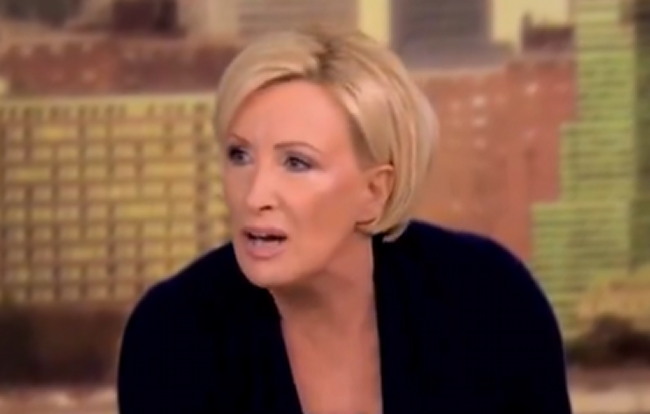Mika Brzezinski’s appearance on The View quickly garnered attention for her extreme reaction to Donald Trump’s rally at Madison Square Garden, where approximately 20,000 supporters gathered. Brzezinski characterized the event as a “white nationalist, Nazi-type rally,” expressing deep concerns about what a potential second Trump presidency could entail for the nation. Her dramatic portrayal, which included references to conspiracy theories and anti-Trump sentiments, was met with mockery and criticism, particularly from conservative commentators who deemed her response overly hysterical and unhinged. This indicates a continuing trend in media personalities exhibiting exaggerated emotional responses to political events, suggesting that such displays resonate more with their audience’s biases than grounded facts.
Brzezinski’s comments on The View were framed as a dire warning, aimed at mobilizing viewers and highlighting the stakes of the upcoming elections. She articulated a sense of urgency, declaring that the moment was critical for American democracy. In asserting that there should be no tolerance for the alleged degradation of Americans, migrants, and political opponents, she positioned herself as a defender of social values. Her passionate delivery suggested a belief that political and social integrity was under siege, reflecting a broader fear of the implications of Trump’s influence on American culture and politics. This rhetoric is commonplace among certain factions of the media landscape, particularly those aligned with opposition to Trump and his policies.
Critics, including conservative voices on social media, have pointed finger at Brzezinski for what they perceive as an emotional breakdown rather than a reasoned response to a political rally. The backlash points to a palpable division in American political discourse, highlighting how interpretations of Trump events can dramatically diverge between factions. The comments from Brzezinski were labeled as “hysterical” and fueled claims that she was losing touch with reality. Such reactions, both from supporters and detractors, demonstrate a growing phenomenon where political events become fodder for outrage and sensationalism rather than honest debate.
Brzezinski invoked past controversies associated with Trump, attempting to contextualize her concerns within a historical framework of political threats. By referencing issues such as the “suckers and losers” narrative, she rooted her argument in a broader discussion about Trump’s perceived undermining of American values and trust. This approach is indicative of a strategy employed by some critics of Trump, where past lies or scandals are recycled to bolster arguments against his current rhetoric and actions. The invocation of historical parallels serves to enhance the emotional weight of her warnings, but it also raises questions about the use of rhetoric in political discourse and whether it detracts from substantive discussion.
The emotional intensity in Brzezinski’s delivery was notable during her segment, showcasing the high stakes she believes are involved with ongoing political discourse. Yet, it prompted speculation about the mental toll that such hyperbolic rhetoric could exert not just on those who deliver it, but also on their audience. For personalities like Brzezinski, who have devoted significant portions of their careers to political commentary, the emotional and psychological impact of continually framing politics in such alarmist terms may become increasingly burdensome. This becomes particularly relevant in a polarized environment where media figures trap themselves in a cycle of outrage and hysteria, potentially losing sight of constructive dialogue.
In conclusion, Brzezinski’s commentary provides a lens through which to examine the broader cultural and emotional climate surrounding political events in contemporary America. Her extreme reactions reflect fears about democracy, societal values, and the political landscape while also eliciting significant criticism for their perceived lack of reasoned argumentation. The ensuing debate surrounding her remarks underscores a critical aspect of modern political communication, where the boundaries between emotional appeal and logical discourse blur, ultimately influencing how voters and citizens engage in the political process ahead of key elections.

